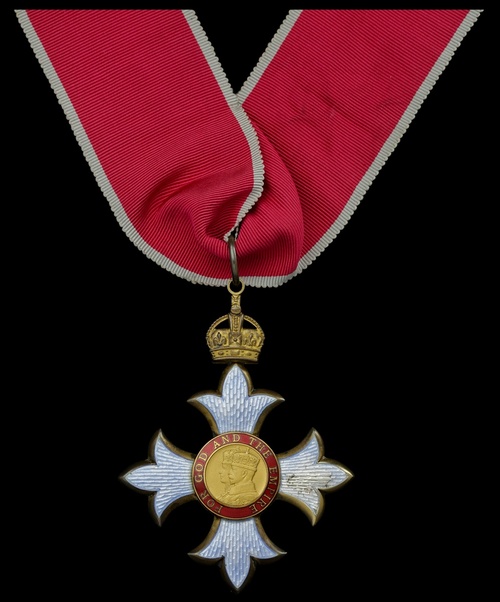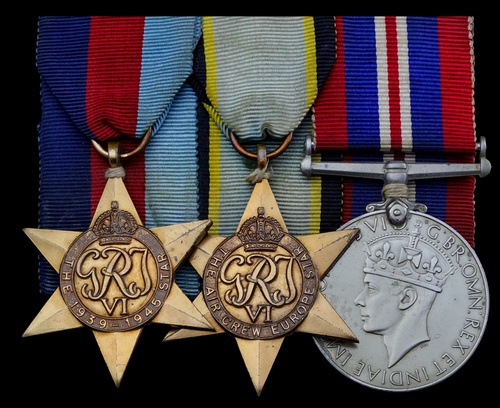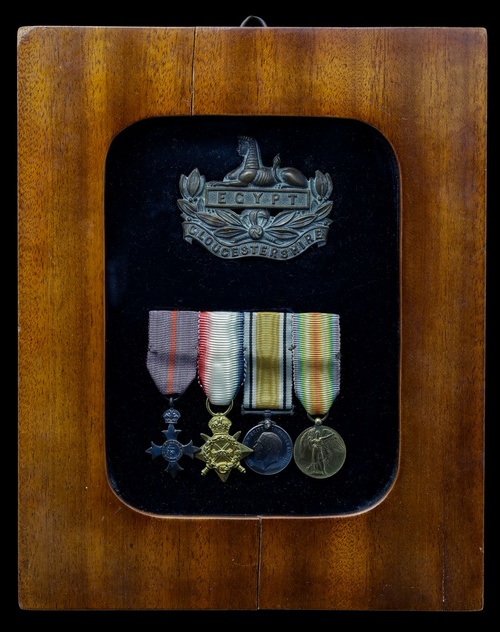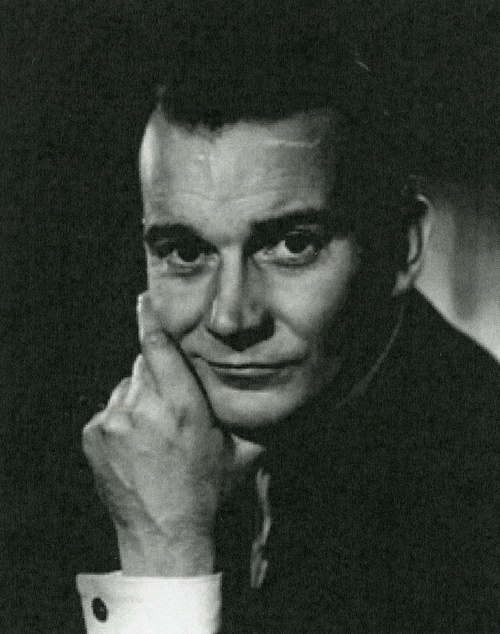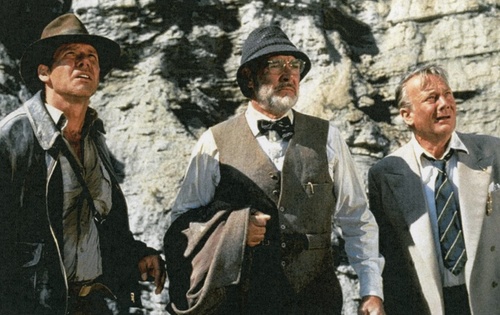Auction: 19003 - Orders, Decorations and Medals
Lot: 407
'On Trading Places (1983) my agent said:
"If you accept the terms of the contract they are offering you, they will despise you. I know the Americans. You are not asking for enough money or first-class transportation or a very good hotel. Your per diem is ridiculous and your billing is non-existent."
Five days later they came back with double everything. I had a flight on Concorde, the best hotel, star billing, everything. There's sort of a gratitude in their eyes that you got twice the amount of cash out of them because they think they are buying something. If they think they got you cheap, they are worried about it.'
A fascinating group of four awarded to Sergeant D. Elliott, Royal Air Force, who served as Wireless Operator and Air Gunner aboard a Halifax bomber which was hit and downed by flak during a raid on the U-Boat pens at Flensburg, Germany, forced to ditch in the North Sea near Sylt: only Elliott, who was on his first sortie, and two crewmen survived to spend the rest of the war behind wire.
He later became a highly-successful international actor with more than 120 film and television credits, being nominated in 1987 for an Academy Award for his performance in A Room with a View and taking home three BAFTA's in consecutive years, a record yet to be bettered
The Most Excellent Order of the British Empire, C.B.E. (Civil) Commander's 2nd type neck badge, silver-gilt and enamel, with full width neck riband; 1939-45 Star; Air Crew Europe Star; War Medal 1939-45, the first with blue enamel damage to one arm, nearly very fine and better (4)
C.B.E. London Gazette 31 December 1987.
Denholm Mitchell Elliott was born on 31 May 1922 at Ealing, Middlesex, the second son of Myles Layman Farr Elliott. His father read Law and Arabic at Cambridge before fighting with the Gloucestershire Regiment at Gallipoli and in Mesopotamia. In 1930 Myles Elliott was appointed Solicitor-General to the Mandatory Government in Palestine and three years later, following a series of controversial government prosecutions, was assassinated outside the King David Hotel, and buried in the Protestant Cemetery on Mount Zion.
As a result, Denholm and his brother Neil were placed in boarding schools in England, the former to Ripley Court Preparatory School in Surrey, followed by Malvern College, Worcestershire. It is recorded that he hated public school life and developed kleptomania, until a psychologist recommended he go to The Royal Academy of Dramatic Art. It proved to be an utter failure, Elliott being asked to leave after one term. As he later recalled:
'They wrote to my mother and said, "much as we like the little fellow, he's wasting your money and our time. Take him away!"'
In mitigation, Elliott later added:
'They said I had no talent. I disliked it intensely there. It was all filled with acting students who thought they were so grand and knew it all. It made me feel ridiculously stupid.'
No. 76 Squadron - shot down and into the bag
Elliott enlisted into the Royal Air Force shortly after his birthday on 29 June 1940, being posted to No. 76 Squadron, part of the newly created No. 4 Group, Royal Air Force Bomber Command, later under the command of Acting Wing Commander Geoffrey L. Cheshire - himself a household name who requires little introduction - from August 1942. On the night of 23-24 September 1942, Elliott was shot down in Halifax DT508, the aircraft ditching in darkness in the North Sea. With little information as to the fate of the crew, Cheshire wrote to Elliott's mother on 29 September:
Dear Mrs. Elliott,
It was with the very deepest regret that I had to telegraph you to tell you that your son, Sergeant Denholm Elliott, is reported missing. He and his crew had only been in the Squadron a few days. It was the first operational flight they had done here.
The target against which they were detailed was Flensburg. The defences were not particularly heavy but I know that they attacked from a low level, probably 3,000 feet, consequently the mission was inevitably dangerous.
We heard no news of them from start to finish, but that in itself does not mean very much, since it is only once in a hundred cases that we have any indication of what happened.
I can only say that your son's crew was the best and the keenest that I have seen in a very long time. His loss is indeed a very sad blow and the Squadron join me in sending you my very sincerest sympathy.
Yours very sincerely,
G. L. Cheshire.
Wing Commander, Commanding, No. 76 Squadron R.A.F.
Elliott was fortunate to survive the impact and subsequent immersion within the wreckage, struggling free and later becoming a Prisoner-of-War at Lamsdorf Camp from 1 October 1942-20 January 1945. Transferred to Görlitz and Falling Bostel camps in the final throes of the War, he gained further experience in amateur dramatics through the camp's theatre companies, performing plays given to them by the Red Cross. According to his general questionnaire for British/American ex-prisoners, Elliott made an attempt to escape from camp but was unsuccessful.
Repatriated home to Drayton Gardens, London, Elliott made his film debut in 1949 as Oswald Morfrey in Dear Mr. Prohack. Over the next few years he became a much-loved character actor who specialised in playing slightly eccentric and often flawed upper-middle class English gentlemen, including the drunken journalist Bayliss in Defence of the Realm, the criminal abortionist in Alfie, and the washed-up film director in The Apprenticeship of Duddy Kravitz. By the early 1970's Elliott began to gain considerable exposure on television, including plays by Dennis Potter such as Follow the Yellow Brick Road (1972), Brimstone and Treacle (1976), and Blade of the Feather. Potter later commented on Elliott:
'He was a complicated, sensitive, and slightly disturbing actor. Not only was he a very accomplished actor, he was a dry, witty, and slightly menacing individual. As a man I always found him very open, very straightforward and very much to the point.'
Taking to the stage, his career included a stint with the Royal Shakespeare Company and a well-acclaimed turn as the twin brothers in Jean Anouilh's Ring Round the Moon. His scene-stealing abilities led Gabriel Byrne, his co-star in Defence of the Realm, to say:
'Never act with children, dogs, or Denholm Elliott.'
Critical acclaim in his later Career
In the early 1980's Elliott became a particular favourite with the British Academy of Film and Television Arts, winning the award for Best Actor in a Supporting Role in three consecutive years - the only actor to ever have achieved this. According to the American film critic Leonard Maltin, he became most widely known to movie audiences as the academic Marcus Brody in two instalments of the hugely successful Indiana Jones series, Raiders of the Lost Ark (1981) and Indiana Jones and the Last Crusade (1989). He worked with Eddie Murphy and Dan Ackroyd in the comedy Trading Places in 1983 and appeared in four films with Sean Connery, including A Bridge Too Far and Robin and Marian. However, it was his role as Mr Emerson in A Room with a View which earned him the nomination for the Academy Award for Best Supporting Actor. Excelling as an unpopular middle-class retired journalist, he was nominated in the exalted company of Tom Berenger (Platoon), Willem Dafoe (Platoon) and Dennis Hopper (Hoosiers), the Oscar going to Michael Caine for Hannah and Her Sisters.
Behind closed doors
Privately notoriously indulgent between the sheets, Elliott was briefly married for a few months in 1954 to Virginia McKenna. Having divorced, he met Susan Robinson in 1961 when she worked as a singing waitress at the Strollers' Club on 53rd Street, Manhattan, New York. It was an unlikely pairing, she being a convent girl raised by nuns in Washington and he being 20 years her senior. A year later they married in London and enjoyed an extended European honeymoon driving through France in Elliott's Mercedes SL190 convertible, via Barcelona to Ibiza - then something of a celebrity playground. Contemporary newspapers described the actor's nuptials to the 'devastating 20 year old, Susan Robinson'.
On visits to London, the couple were regular fixtures at bohemian drinking clubs. On one outing to the Colony Room with the artist Francis Bacon and his boyfriend John Edwards, Susan Elliott was handcuffed to a barstool by Edwards, who went off home without unlocking her. She made her way back to north London and managed to get into bed beside her husband without disturbing him, concealing the stool by the side of the bed. Elliott set off for filming the next morning none the wiser, and she then hailed a cab to take her to Bacon's studio in Recce Mews, where she was released and then taken to lunch at Wheeler's by her captors.
The first few years of their marriage in the 1960's proved 'a whirlwind of parties, films, touring and babies', but it wasn't long before cracks began to appear. Their 'open marriage' had few constraints, bar Denholm's request '…as long as you don't fall in love and as long as you don't have anyone else's baby'. In her revealing biography Denholm Elliott, Quest for Love (1994), Susan later described her husband's promiscuity as 'almost a psychological disaster'.
Tragedy and loss
Despite extensive success in his professional life, Denholm Elliott's personal life was weighed down with sadness, commencing with the assassination of his father. He and Susan became parents to two children - Mark and Jennifer - both born prematurely, following the stillbirth of twins. As a child Mark suffered from serious illness whilst their daughter Jennifer later committed suicide in 2003 after struggling with addiction. Susan's father, a journalist on Time and later Newsweek magazines, also took his own life by jumping from the 28th floor of the Manhattan Towers.
In 1987 Denholm Elliott informed his wife that he had tested positive for HIV. He died of AIDS-related tuberculosis aged 70 at his home on the island of Ibiza on 6 October 1992. In his memory Susan established a hotel complex on Ibiza called Can Bufi, where people who are HIV positive could enjoy a holiday, subsidised by other paying guests. The business struggled and Susan was forced to return to London in reduced circumstances. Attempting to live a quiet life away from the public gaze, she found herself in the media one final time when trapped in a blaze at her rented home in Hornsey, north London. Dragged from the apartment by a neighbour and suffering from extensive burns, Susan died from her injuries 24 hours later.
Sold together with the following items comprising an important archive:
(i)
Original typed letter with ink signature from Wing Commander G. L. Cheshire to Mrs Nina Elliott, informing her that Denholm is reported missing on operations, dated 26 September 1942.
(ii)
A copy of Four Plays of Shakespeare, bearing the pencil signature of Denholm Elliott to inside cover, twice stamped 'Stalag VIII B', as held and used by Denholm Elliott during his incarceration in Silesia, generally fair condition, missing a page or two.
(iii)
A group of miniature medals which remained within the Elliott family, likely those of his father comprising The Most Excellent Order of the British Empire, M.B.E. (Military) Member's 1st type breast badge, silver; 1914-15 Star; British War and Victory Medals, mounted as worn, together with brass cap badge for the Gloucestershire Regiment, displayed in privately commissioned frame, crack to frame, otherwise nearly extremely fine.
(iv)
Two masonic Founder awards, silver-gilt, unnamed as issued.
Subject to 20% VAT on Buyer’s Premium. For more information please view Terms and Conditions for Buyers.
Sold for
£1,400
Starting price
£480
Sale 19003 Notices
CBE added for display purposes, vendor states the campaign Medal group accompanied the original purchase at Christie's.

